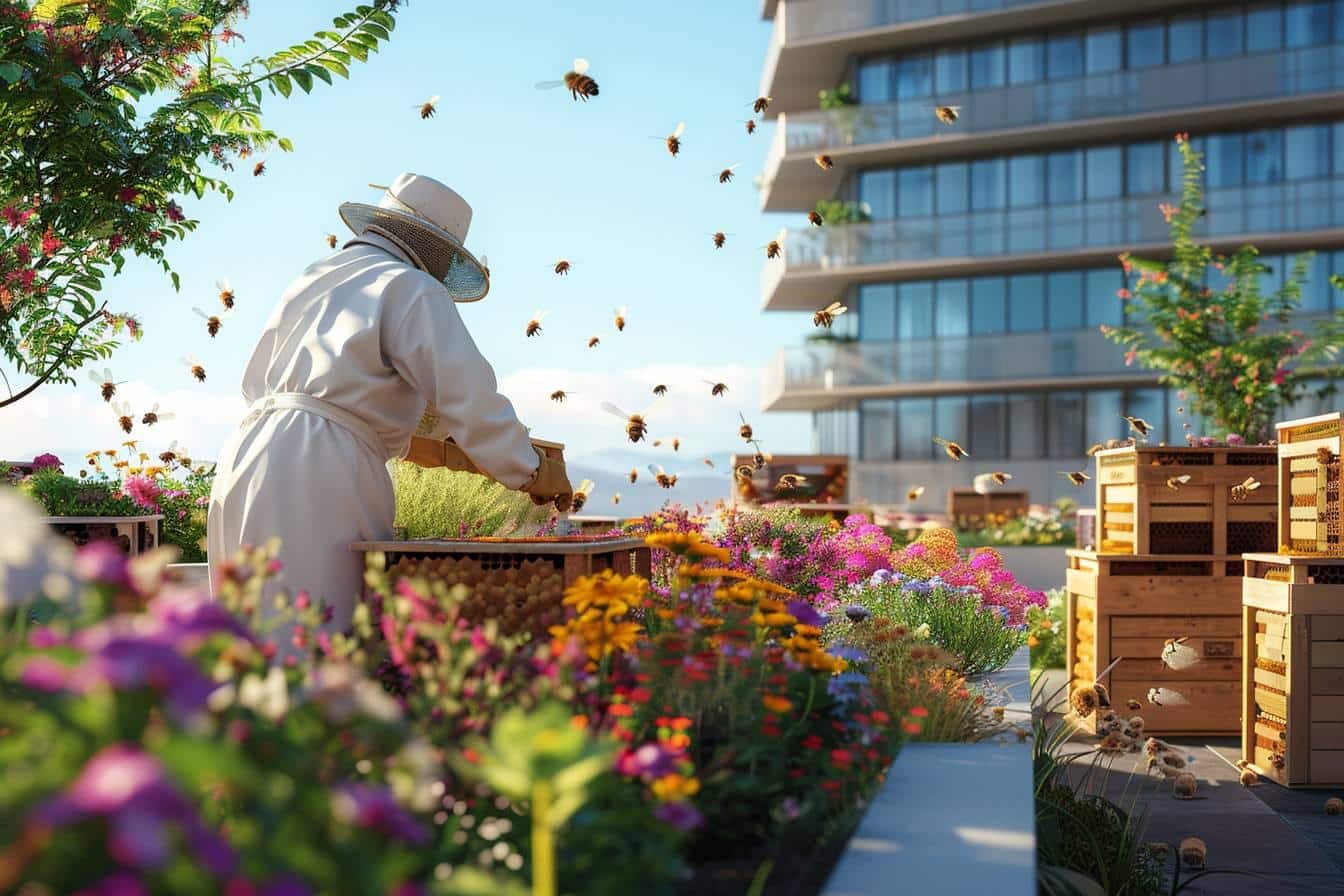The Rise of Ecology: Hotels that Embrace Beekeeping Initiatives #
In an increasingly environmentally conscious world, the hospitality sector is taking a bold step towards sustainability by sponsoring urban beekeeping. Many hotels, realizing the crucial importance of bees for our ecosystem, choose to forge partnerships with local beekeepers to promote sustainable development practices. This article explores how these initiatives, beyond being simply ecological, also offer a wealth of opportunities for hotels and their guests.
Bees: Essential Allies of Ecology #
Bees play a fundamental role in our ecosystem as pollinators. By pollinating about 75% of our food crops, they ensure the diversity of our diet. But their presence is not limited to honey production; by-products like beeswax also offer countless benefits. Hotels that integrate hives on their rooftops not only produce honey, but they also become players in biodiversity, contributing to the health of their local environment.
Fruitful Partnerships: Hotels and Beekeepers #
The collaboration between hotels and beekeepers is rapidly growing. These partnerships allow hotels to benefit from beekeeping expertise while contributing to the preservation of bees. For example, some hotels showcase rooftop hives, creating an ideal habitat for these essential insects while providing their guests the opportunity to discover beekeeping in an immersive way.
À lire Discover Hotel Der Stern: an ideal destination for families with children in Tyrol
An Inspiring Example: Hotel Clio
In Cherry Creek, Hotel Clio perfectly embodies this new vision. In partnership with passionate beekeepers Sarah and Matt McLean, they have taken charge of a hive on the roof. Here, Carniolan bees thrive, producing delicious honey that is then used in the hotel’s products. This model of sustainable beekeeping demonstrates that hotels can be pioneers in environmental protection while offering a unique experience to guests.
Positive Impacts on the Environment and Community #
Beekeeping initiatives in hotels translate into beneficial effects on multiple levels. Firstly, they reduce the carbon footprint associated with honey transport, as products are local. In this perspective, the consumption of local honey not only supports the local economy but also fosters the connection between the hotel and the surrounding community.
Broadmoor: A Symphony of Nature and Hospitality
The Broadmoor Resort exemplifies this concept thanks to its host KJ Ruiz Tencza, who manages the hotel’s hives. Their bees pollinate an abundant flora, and this is reflected in the uniqueness of the honey produced. Each spoonful captures local aromas and allows guests to experience the authentic taste of the region. This method reinforces the idea that sustainable hospitality adds value not only to the service but also to nature.
Contributing to a Sustainable Future #
With the rise of ecology, it is essential for the hospitality industry to take its responsibilities seriously. The rise of beekeeping in hotels is not just a passing trend, but a real commitment to sustainability. By allowing guests to engage in ecological initiatives, these hotels offer them a tangible way to contribute to environmental protection.
À lire Reviews of the Homewood House Hotel & Spa, near Bath, in Somerset
A Model for Other Establishments
Many hotels seek to emulate these learning models. Whether through educational events on beekeeping, honey products in their restaurants, or even selling honey at artisan markets, the potential is enormous. The adoption of these practices by hotel establishments could encourage even more similar initiatives across the globe, thereby building a global community ready to advocate for the health of bees.


